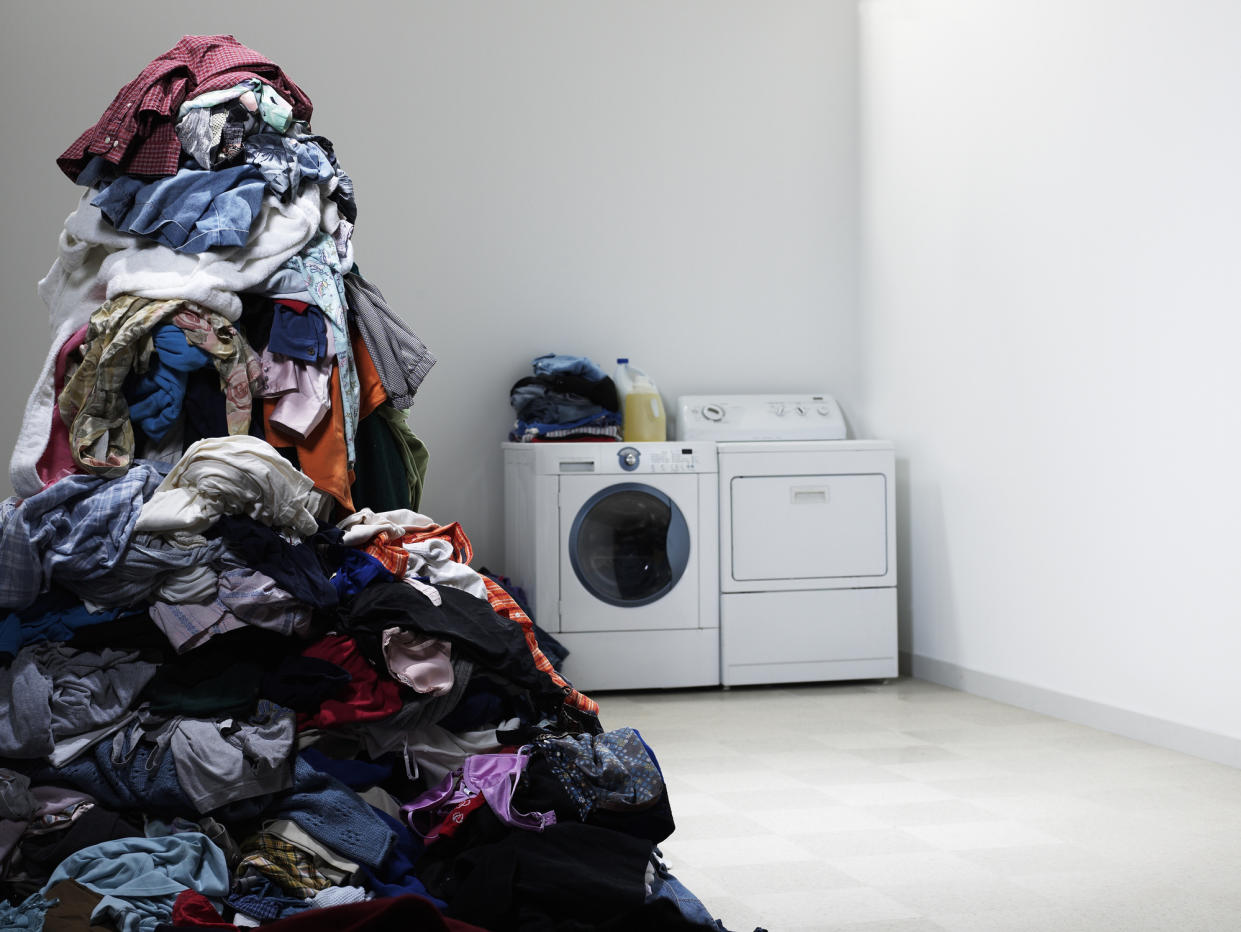Would you wear ‘wash less’ clothing?

SINGAPORE — Apparently washing your clothes less often is better for the environment, and possibly even better for your clothes. But would you want to wear clothing that you wash less? Or would you always be worried about body odour?
A quick whip around with my friends and most of us agreed that while it might be ‘ok’ to not wash things like winter coats and certain types of jeans, most of us agreed that in hot, humid weather like Singapore’s, anything you wear close to your body must be washed regularly.
READ MORE:
Keep calm and spend more on your pet
Kakeibo: Discover the Japanese art of saving money
Family heirlooms, to keep them or get rid of them?
And historically, this is exactly what was done. In Europe people wore woolen ‘outer’ clothes like dresses, coats and jackets, even shirts in some cases, that were never washed - at all. What was washed were the chemises, petticoats, collars and cuffs which were made of fabrics like linen and cotton.
Sure, natural materials like wool could also be ‘aired’ so that they didn’t become smelly with all sorts of nasty bacteria, and these natural fabrics were less likely to cause excess sweating unlike the many plastic-type fabrics that are now being used.
While the development of artificial fabrics from the 20th century onwards has led to lots of environmental problems - from plastic in the oceans to too much landfill - there might be something positive to be found in them as well.
A group of eco-friendly fashion brands are coming up with items of clothing that are designed NOT to be washed as often as usual.

Unbound Merino creates wool basics like tees and underwear that can be used for weeks without being washed; Pangaia creates seaweed fiber t-shirts with peppermint oil to keep the shirts fresher between washes - and apparently will save about 3,000 litres of water per t-shirt; Wool & Prince creates menswear items like boxers and shirts from wool that have been designed to be washed less often, and its sister company, Wool&, makes dresses that can be worn for 100 days without washing.
It’s important to note, obviously, that all these brands are using more natural textiles like wool, and have launched in countries that actually have cooler seasons, so those ideas might not be that helpful for those of us living in hot and sticky climates.
Still, as one of my friends pointed out, Uniqlo has been selling socks with anti-odour properties, and its Airism products have been designed to cool down the body via ‘technical’ fabrics; she also pointed out the use of silver in products like Lululemon’s leggings which are supposed to be antibacterial and anti-odour.
We are washing out clothes too much … which is bad
According to an article from Fast Company, washing clothes is actually bad for the environment - one washing machine brand says almost 90% of our clothes aren’t actually dirty enough to be washed; but that washing clothes uses 17% of our homes’ water usage.
And if our clothes are made of materials like nylon, polyester etc, we are sending millions of plastic nano-particles into our oceans every time we do a load of laundry.

Are ‘wash less’ clothing items hygienic?
While we tend to think of wool as being only for keeping warm, it actually can also be used to keep you cool - if it’s the right type of wool fabric it can wick-away your sweat, making you feel cooler and also not trapping the sweat which is actually what leads to bacteria, and eventually smells.
This is why brands like Unbound Merino make their socks, underwear and t-shirts in a type of wool fabric that feels the same as the polyester we’re used to wearing, so you won’t even think you are wearing wool.
Wearing organic cotton is another way to have a natural product that is more likely to ‘breathe’ and therefore be less likely to cause the buildup of bacteria that causes body odour too. Pangaia is a brand that uses organic cotton mixed with a seaweed fibre that is more sustainable, and the addition of peppermint oil - an antibacterial - means you don’t have to wash these pieces as often as well.
Living in hot and humid Singapore, we already know about the importance of wearing clothing made of natural materials; and many of the sustainable fashion brands available in Singapore already focus on natural materials.
However, over recent decades the increase in the use of air-conditioning has seen some of us choose fabrics that are less natural, and more convenient like crease-free shirts and dresses made of polyester and nylon.
These ‘wash less’ brands are also highlighting that their clothes are more convenient to use - since you don’t have to wash them as often - so buying them could be a win-win for both the environment, and time-strapped people too.
What do you think? Would you wear ‘wash less’ clothing? Leave a comment below.


